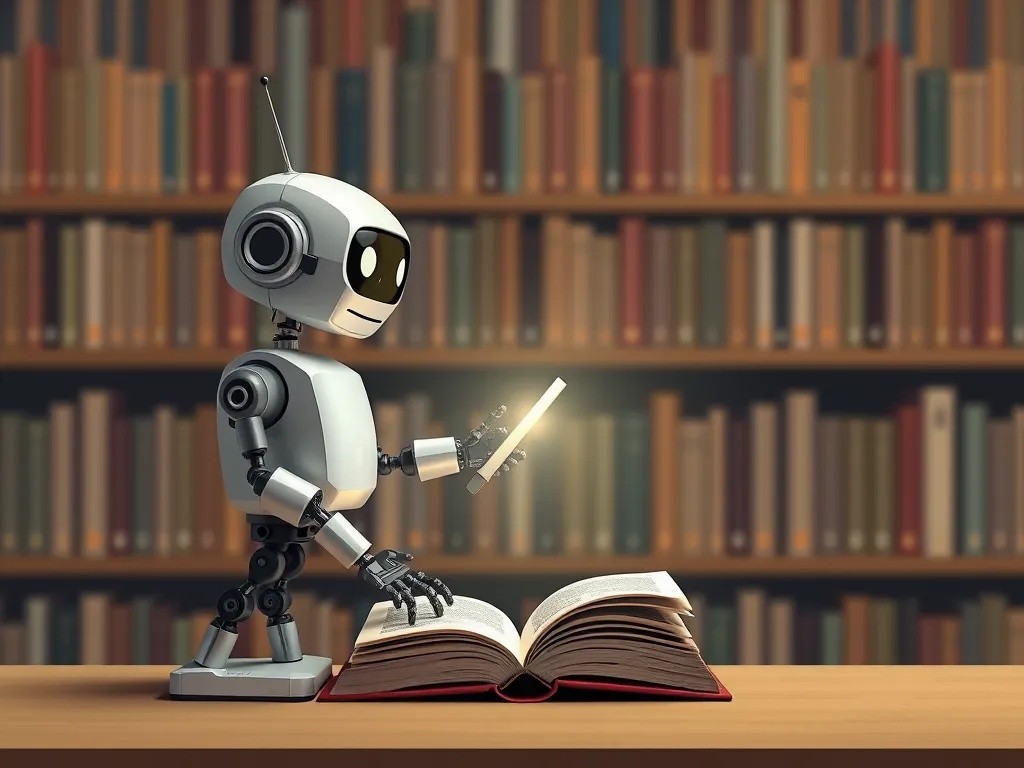In recent years, there has been a significant advancement in the field of Artificial Intelligence (AI) and Augmented Reality (AR). These technologies have become increasingly popular and have the potential to enhance virtual experiences in various fields such as gaming, education, healthcare, and...
Robot Librarian Finds Any Book in Seconds Using Just Keywords

The future of library science has arrived in the form of sophisticated robot librarians that can locate any book within seconds using nothing more than simple keywords. These revolutionary automated systems are transforming how we interact with vast collections of literature, making knowledge more accessible than ever before.
The Technology Behind Instant Book Discovery
Modern robot librarians employ a combination of artificial intelligence, advanced databases, and precise mechanical systems to achieve their remarkable speed and accuracy. The core of their functionality lies in comprehensive keyword indexing that goes far beyond traditional cataloging methods.
Advanced Keyword Recognition
These systems utilize natural language processing to understand context, synonyms, and related concepts. When a user inputs keywords like "mystery Victorian London," the robot doesn't just search for exact matches but understands the broader context and can suggest relevant titles that might use different terminology but share thematic elements.
Multi-Layered Database Integration
The robot librarian's database includes:
- Complete bibliographic information
- Plot summaries and thematic tags
- Character names and locations
- Historical context and time periods
- Author biographical data
- Reader reviews and ratings
How the System Works in Practice
Users interact with robot librarians through various interfaces, from touch screens to voice commands. The process is remarkably streamlined: a patron simply provides keywords describing what they're looking for, and within seconds, the system provides precise recommendations along with exact shelf locations.
Real-Time Physical Location
Unlike traditional catalog systems that might tell you a book is "somewhere in the 800s section," robot librarians provide GPS-precise coordinates within the library. Some advanced systems even include robotic arms or mobile units that can physically retrieve books and deliver them to designated pickup points.

Benefits for Library Users
The advantages of robot librarian systems extend far beyond mere speed and convenience. These technologies are democratizing access to information in unprecedented ways.
Accessibility Improvements
Robot librarians excel at serving users with various needs and abilities. Voice-activated search helps visually impaired patrons, while the system's ability to understand partial or imprecise descriptions aids users who might struggle with traditional search methods. The technology also supports multiple languages, making libraries more inclusive for diverse communities.
Enhanced Discovery Experience
Beyond finding specific titles, these systems excel at discovery. They can identify patterns in a user's reading history and suggest new authors or genres that align with their interests. The keyword-based approach often reveals connections between books that traditional categorization might miss.
Implementation Challenges and Solutions
While the technology is impressive, libraries face several challenges when implementing robot librarian systems. Initial costs can be substantial, requiring significant investment in hardware, software, and staff training.
Maintenance and Updates
Keeping the system current requires ongoing attention:
- Regular database updates for new acquisitions
- Software patches and security updates
- Physical maintenance of robotic components
- Staff training on system operation and troubleshooting
The Future of Automated Library Services
As artificial intelligence continues to advance, robot librarians are becoming increasingly sophisticated. Future developments may include predictive recommendations based on current events, integration with digital reading platforms, and even more nuanced understanding of user preferences and research needs.
Integration with Digital Collections
The next generation of robot librarians will seamlessly bridge physical and digital collections, providing unified search results that include physical books, e-books, audiobooks, and multimedia resources. This comprehensive approach ensures users never miss relevant materials regardless of format.
Robot librarians represent a significant leap forward in making knowledge accessible and discoverable. By combining the efficiency of modern technology with the comprehensive nature of traditional library collections, these systems are setting new standards for what libraries can offer their communities. As the technology continues to evolve, we can expect even more innovative ways to connect readers with the information and stories they seek.



